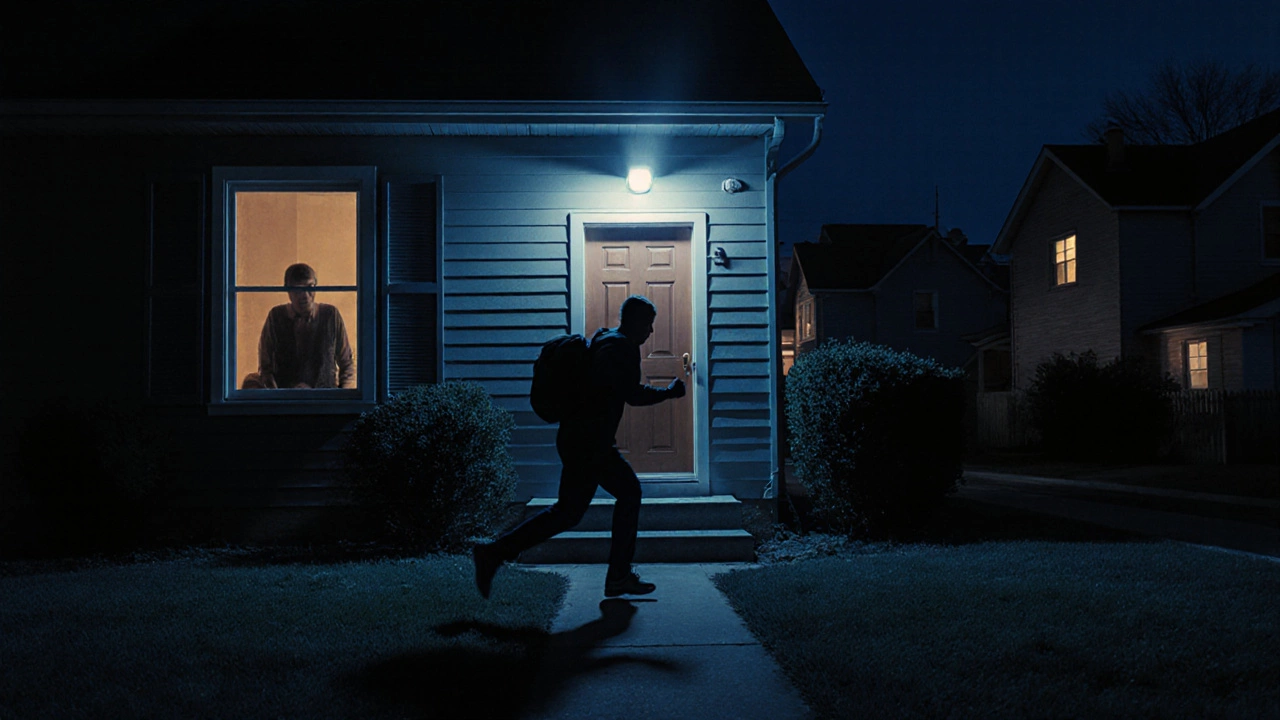Do alarms scare burglars, a common question among homeowners worried about break-ins. Also known as burglar alarm deterrents, these systems are designed to interrupt criminal activity before it starts—not just after. The short answer? Yes, but not because they’re loud. It’s because they change the risk calculation for someone thinking about breaking in.
Burglar alarm systems, a category of security devices that trigger alerts when unauthorized entry is detected work by making a home look like a high-risk target. Burglars aren’t looking for a fight—they’re looking for the easiest path. A visible alarm sticker, a blinking light, or even the sound of a siren tells them this house has a higher chance of getting caught. Studies from the University of North Carolina show that over 60% of burglars would pick another house if they saw signs of an alarm system. That’s not magic. That’s math.
But not all alarms are created equal. A simple door chime won’t cut it. What actually deters crime are systems that combine motion sensors, devices that detect movement using heat or infrared signals, real-time alerts, and professional monitoring. When a motion sensor triggers and you get a phone notification within seconds, you’re not just scaring a burglar—you’re alerting neighbors, police, and maybe even the intruder’s own instincts that this isn’t worth the risk.
And then there’s the psychology. Burglars don’t plan for long. They scout quickly, test doors, and decide in under a minute. If your alarm is active, the door is locked, the driveway lights are on, and the camera is visible, they walk away. It’s not about being the strongest house. It’s about being the least attractive one.
Some people worry alarms cause false alarms and annoy neighbors. That’s true—but it’s also fixable. Modern systems let you adjust sensitivity, avoid pet triggers, and use smart alerts that only notify you when something unusual happens. You don’t need a siren blasting every time your cat jumps on the couch.
What you do need is a system that’s reliable, visible, and smart. A loud alarm with no backup power? Useless during a power cut. A camera with no motion detection? Just a fancy recording device. A system that only works when Wi-Fi is up? Risky, especially when criminals know how to cut signals.
That’s why the most effective setups combine hardwired components, battery backups, and cellular fail-safes. They don’t rely on one thing working—they plan for everything to fail.
And yes, you can do this without monthly fees. There are self-monitored systems that send alerts straight to your phone, use local storage, and still trigger loud sirens. You don’t need to pay a company to watch your house. You just need to make sure your house looks like it’s already being watched.
Below, you’ll find real breakdowns of how alarms actually work, what types of sensors scare burglars the most, what happens when the power goes out, and how to avoid the traps that make alarms useless. No fluff. No hype. Just what works—based on real data, real homes, and real burglars who chose to walk away.

Do burglars leave when an alarm goes off? Yes-87% do, according to real data from convicted burglars. Learn why alarms work, how to make them more effective, and what most homeowners get wrong.